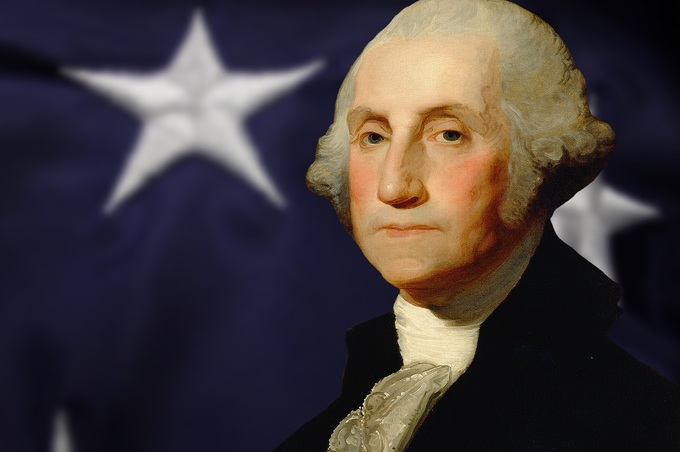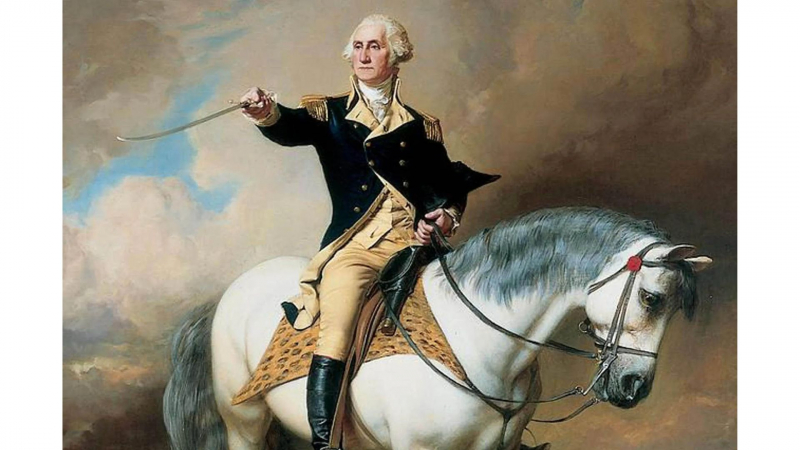George Washington

During the American Revolutionary War, George Washington (1732-1799) served as Commander in Chief of the Continental Forces. He was also the first president of the United States, serving from 1789 to 1797. Washington is known as the "Father of the Nation" and a symbol of Republican democracy. His picture can be found on coins and statues all around the United States.
George Washington was born in Virginia in 1732. His family was affluent, and they owned a large number of slaves who worked on the plantations. As a planter, he felt limited by British laws and taxes, which contributed to his decision to resist the British in the later Wars of Independence. Washington was interested in military things and exploring the Western territories in addition to working as a planter. In May 1775, delegates utilized his military experience to elect Washington as commander of the United States Continental Army.
The American Revolution would last six years. Washington had to deal with poorly trained and equipped men, especially in the beginning. In the early days of the war, he pursued a strategy of annoying the British while avoiding full-scale battles with them. It wasn't until 1781 that Washington was able to defeat the British at Yorktown with the assistance of French forces.
After the victory was secured in 1783, Washington resigned as Commander in Chief. He wanted to emphasize that he would not be the de facto military ruler. Washington desired the employment of the new American constitution and democratic government. The new constitution and Declaration of Independence, according to Washington, were an opportunity to establish a new type of government and society founded on human rights.
Washington maintained considerable support as a successful military leader, and given the obstacles confronting the developing republic, he ran for public office and the presidency. Washington was elected President of the United States by a huge majority and served from April 1789 to March 1797. Washington skillfully kept the United States out of confrontations with the United Kingdom and France as President. During this period of peace, the new country was able to rebuild its national finances and acquire a significant period of stability.
Washington put an excise levy on spirits in 1791. The federal government needs to raise tax revenue to pay off war debts. The so-called "Whiskey Tax" was widely despised, and many citizens revolted against tax collectors. Washington rode out to Western Pennsylvania to meet with the insurgents. Although the levy was difficult to collect, Washington prevented the revolt from escalating and helped to create the notion of federal taxes.
Many norms and practices that are still in use today were established during Washington's administration. This featured the establishment of a cabinet system, as well as the President's inaugural address and title. His Republican beliefs left an indelible mark on American society and governance. Despite his popularity, President Obama had to be persuaded to run for a second term. Both Thomas Jefferson (Democrat-Republicans) and Alexander Hamilton (Federalist Party) set aside their policy disagreements to persuade Washington to run for re-election. They believed that only Washington could keep the new country together.
Washington concurred, but by the end of his second term, he had grown tired of politics, particularly the factionalization of politics into distinct parties. Despite mainly agreeing with their policies, he refused to join the Federalists. In some ways, Washington loved the idea of centralized power. Despite his opposition to the British, he recognized the power of a unified political body. Washington, on the other hand, was keen to avoid the pomp and ceremony associated with monarchs.
In 1796, he delivered a Farewell Address in which he discussed civic virtue and political governance. It reflected Washington's conviction in the virtues of the union of states, as well as his desire for a peaceful foreign policy and commitment to the constitution and democracy.
George Washington was universally regarded as a capable administrator and a man of exceptional integrity. Washington is thought to exemplify integrity, self-discipline, courage, honesty, resolve, and respect for others.


























